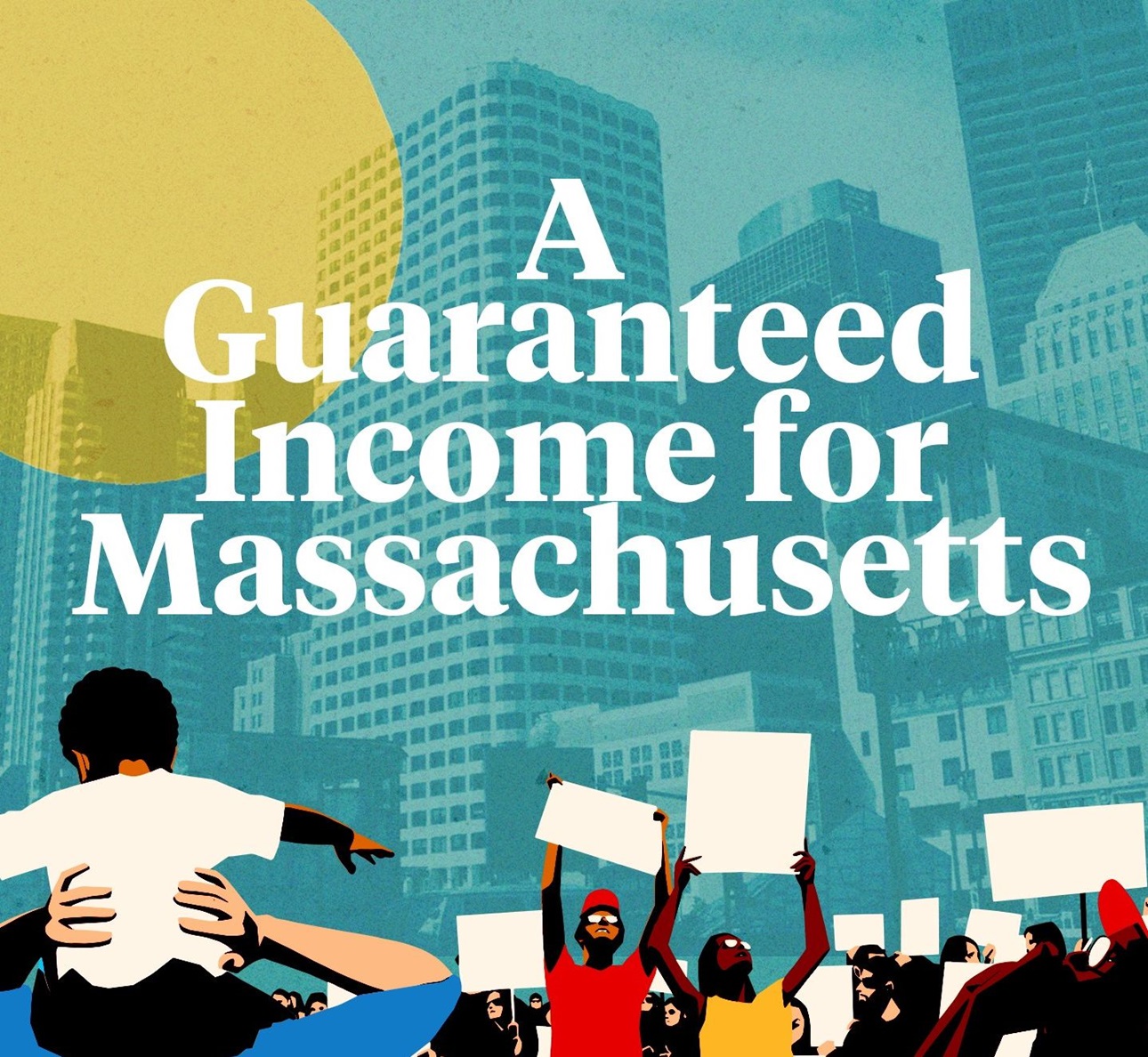Guaranteed Income: A Data-Driven Pathway to a More Equitable Economy
A robust discussion of how making changes to the state Earned Income Tax Credit could put Mass. residents on a more secure financial footing
July 22, 2020
As the research arm of the Boston Foundation, Boston Indicator’s stock in trade is timely, clear and accessible data analysis that reveals new connections or confirms observations about trends and dynamics in our region’s history or present.
With its most recent report and forum, A Guaranteed Income for Massachusetts, Indicators looks to the future, using data not just to predict trends but to propose real action to counter a current problem. With what Vice President of Strategy and Operations Stephen Chan called “bold and divergent thinking,” Indicators researchers and partners outlined one possible pathway to reduce economic inequity via a guaranteed basic income, and how it might work in Massachusetts.
A powerful introduction from Natalie Foster, Co-chair and Co-founder of Economic Security Project, a project partner, set the tone. Reminding us that we face the worst economic crisis since the Great Depression, she observed that the notion of “deservedness” has held policy makers back forever. Now she is hopeful because, as she said, “We’re in the midst of a movement led by Black leaders joined by millions of all kinds to create a country and a government that is actively antiracist, and to make sure racial justice is inextricably entwined with economic justice.” Cash is one of the most effective ways to help families stuck in cycles of poverty, and contrary to puritanical fears that people don’t deserve “something for nothing” and will just quit working if given a direct monetary boost, she pointed out numerous pilot programs and experiments where modest direct payments have allowed working poor people to finally achieve goals of stability, advancement and self-sufficiency.
But how to introduce something like a guaranteed basic income in Massachusetts? Two of the report’s authors, Boston Indicators Research Manager Trevor Mattos and Massachusetts Budget and Policy Center Policy Analyst Phineas Baxandall, outlined five possible reforms to the Commonwealth’s Earned Income Tax Credit (EITC), that taken together would allow approximately 1.8 million people to claim a credit of at least $1,200 (average $1,386), up from 888,000 able to claim as little as $50 (average $685). Those reforms include:
- Increase the state match rate from 30 to 50 percent of the federal EITC.
- Provide a minimum $1,200 credit to extremely low-income and no-income households.
- Extend income eligibility to include middle-income families (with annual household income up to $75,000).
- Expand eligibility to previously excluded groups (e.g., unpaid caregivers, immigrants who pay taxes with an Individual Taxpayer Identification Number).
- Increase the impact of the EITC by expanding access to free tax preparation services and providing more frequent payments.
Modifying the EITC is not the only approach—as multiple case studies shared in the report attest—but has the advantage of making use of an administrative system that is already in place. As Boston Indicators Director Luc Schuster asserted in an introduction, “These are not the only good ideas for big solutions, but we hope they will help contribute to the growing conversation. Without specific ideas on the agenda, we’re not going to be able to act and move the lever.”
Panelist Luz Arevalo, Senior Attorney and Directory of the Low-Income Taxpayer Clinic, Greater Boston Legal Services, works with families likely to make us of the proposed provisions. She said, “I can’t imagine a more timely idea.” For one thing, financial stability can improve the physical health of low-income people. Many of her clients are immigrants who pay taxes like a citizen through an Individual Taxpayer Identification Number, yet cannot claim tax-based benefits like a citizen without a Social Security Number. She explained why she sees EITC as a success already in many ways. With the cash it provides, “I’ve seen clients able to open a small business like a landscaping company, or to purchase a multifamily home, where rental income supports their mortgage.” Strengthening the state EITC will increase these opportunities. “The beauty of the proposal,” she added, “is it increases the tie to work. People want to work—it creates identity and purpose—so incentives to work and earn more help enrich people’s lives in more than one way.”
Indeed, as Foster pointed out at the start, this type of small boost in income gives poor people the asset of time. One recipient in a guaranteed income experiment in California, for example, was able to drop his third gig and conduct a real job search—with time to research jobs, shop for a suit, and go to interviews—and landed a manager-track job, which had been his long-held goal. “If we had installed universal basic income back when Martin Luther King, Jr. had called for it [during the Poor People’s Campaign], we’d be in such a better place today. Let’s do this now and get ahead of the next ‘pandemic,’ be it viral or climate or something else.”
The reforms to support Massachusetts’ lowest income residents will require additional revenues, which could come from progressive adjustments to the tax code. Not without challenges, but the benefits of greater stability, health and achievement for folks on the lower economic rungs will reverberate throughout the economy and society. Mattos urged daring and reminded us, “Massachusetts has led on big change before [think marriage equality…]. This report offers a pathway for Massachusetts to be a leader in this.”

